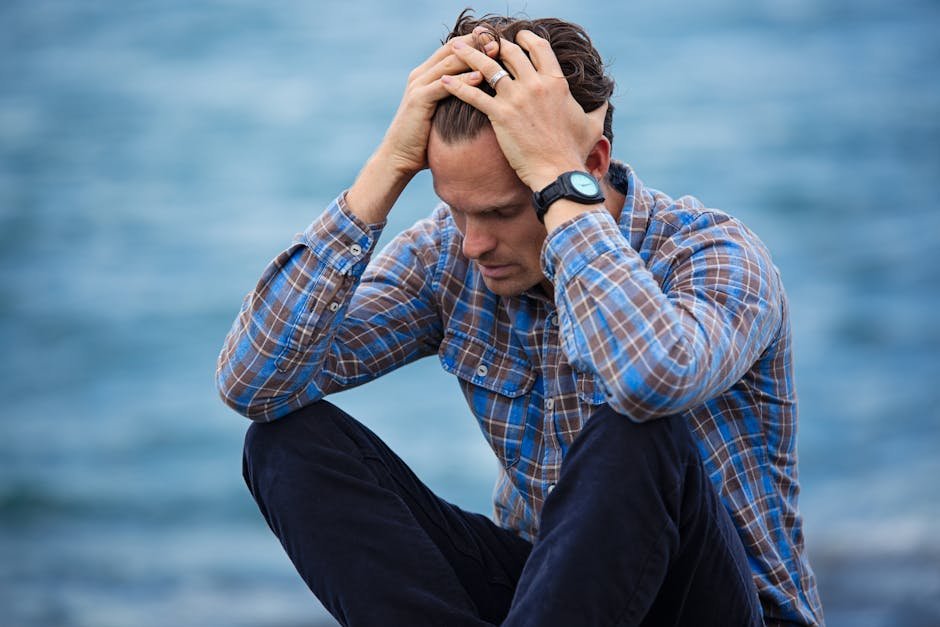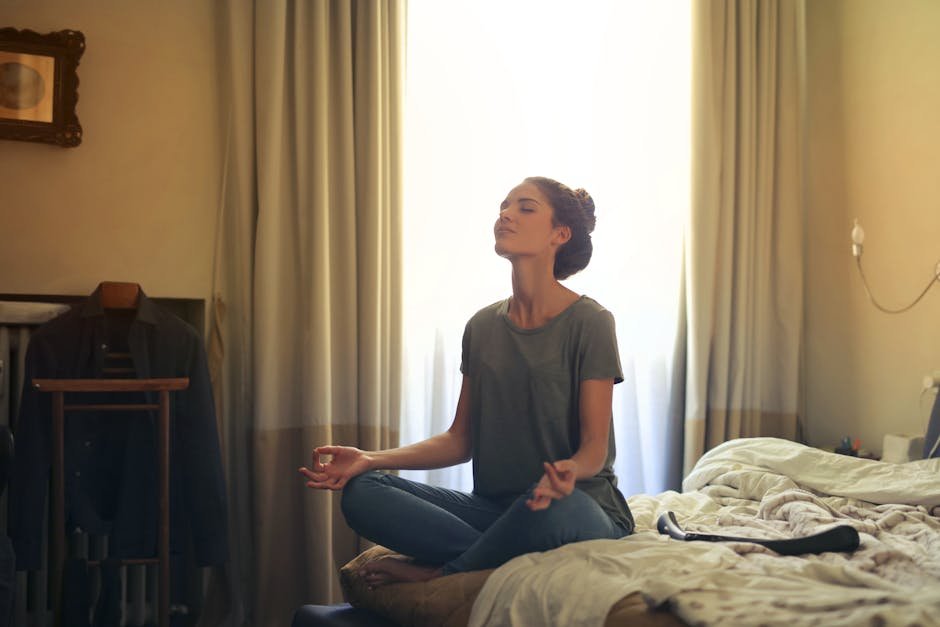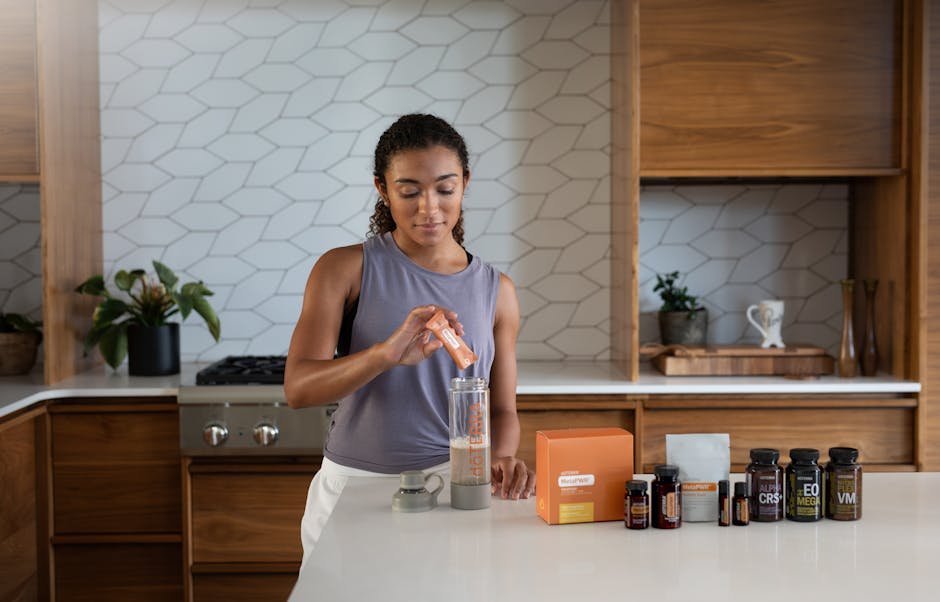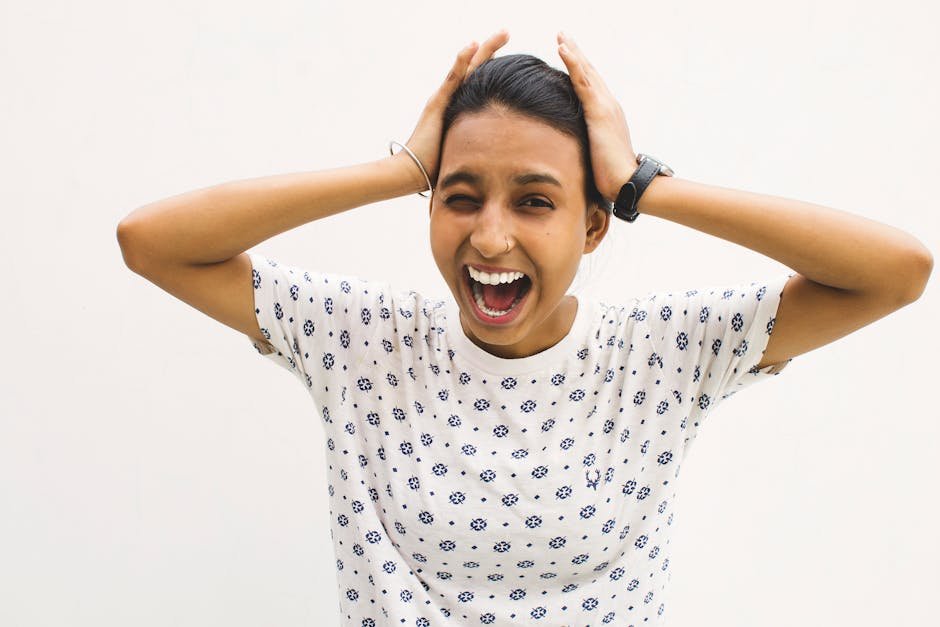Controlling anxiety is a common challenge these days. Anxiety is the body's natural response to stressful situations. stress, characterized by feelings of worry, fear and apprehension. Although everyone experiences feelings of anxiety at some point in their lives, when they become intense and persistent, they can significantly interfere with quality of life and daily life. At this stage, anxiety ceases to be something specific and becomes considered a mental disorder, such as generalized anxiety disorder.
Summary
Symptoms of anxiety vary greatly: they can include physical manifestations such as tachycardia, sweating, tremors and muscle pain, as well as emotional symptoms such as irritability, difficulty concentrating, insomnia and even obsessive thoughts. In more intense cases, anxiety attacks may occur, characterized by a feeling of suffocation and loss of control.
In the long term, chronic anxiety can lead to social isolation, affect work performance, harm relationships and require professional help. Recognizing the signs and seeking natural ways to manage it is essential to regain balance and live a full life.
Explanatory video on how to control anxiety:
What is anxiety and what are its main symptoms?
Anxiety is a feeling of apprehension or fear when faced with a situation that is perceived as threatening. Generalized anxiety disorder is a condition in which this state becomes constant and disproportionate, affecting daily routine. The World Health Organization estimates that millions of people suffer from anxiety worldwide.
The main symptoms of anxiety include:
- Excessive worry
- Muscle tension
- Irritability
- Difficulty sleeping
- Irregular breathing
- Chest pain
- Feeling of loss of control (in cases of panic attack)
What can cause anxiety?
Anxiety can be triggered by a variety of factors, such as stress at work, family pressures, financial crises or even eating habits. Excessive caffeine consumption, for example, can intensify symptoms. Traumatic situations or genetic predisposition also increase the risk of developing anxiety disorders.

According to the World Health Organization (WHO), anxiety disorders affect millions of people worldwide and can be associated with other conditions such as depression. Some triggers can be subtle, such as losing a job or facing changes in routine.
How to control an anxiety attack when it happens?
During an anxiety attack, it is important to apply immediate techniques to calm your body and mind. Some effective strategies include:
- Diaphragmatic breathing: breathe deeply through your nose, expanding your abdomen, and exhale slowly through your mouth
- Sensory grounding: focus on the five senses to anchor yourself in the present
- Talk to yourself kindly: phrases like “it will pass” and “this is just a crisis, not a real danger” help to calm the nervous system
These techniques can help relieve physical symptoms and reduce feelings of threat. Regular practice can make it easier to control panic attack symptoms. anxiety.
What are the best mindfulness practices to relieve anxiety?
Mindfulness is a technique that teaches you to focus on the present moment without judgment. This can reduce the impact of anxious thoughts and promote greater self-awareness.
Common practices:
- Guided meditation (there are several free apps)
- Mindful walking, observing sounds and sensations
- Eat mindfully, focusing on flavors and textures
Practicing mindfulness daily can help manage anxiety and improve emotional health.
👉 If you want a broader overview of how to improve emotional health in your daily life, read our complete guide to well-being and mental health.
Breathing techniques to control anxiety
Breathing techniques activate the parasympathetic nervous system and help you relax. For example, 4-7-8 breathing is often used:

- Inhale for 4 seconds
- Hold for 7 seconds
- Exhale slowly for 8 seconds
This practice can be used daily or during times of crisis. In addition, breathing techniques help control an anxiety attack and contribute to a good night's sleep.
Does physical exercise help alleviate anxiety symptoms?
Yes! Practicing physical activities releases endorphins, substances that cause a feeling of well-being. Activities such as walking, swimming, dancing or yoga can reduce the physical symptoms of anxiety and improve mood. sleep quality.
Furthermore, exercise helps to channel accumulated energy and reduces cortisol levels (stress hormone), contributing to physical and mental health.
Can diet influence mental health?
A diet rich in natural foods can help control anxiety. Foods rich in tryptophan, magnesium and omega-3 are recommended. Examples:
- Fish such as salmon and sardines
- Brazil nuts and seeds
- Oatmeal and banana
Avoid ultra-processed foods, excess sugar, and stimulants like soda and coffee. These food choices also help reduce anxiety and help you cope with anxiety more effectively.
Natural supplements to help control anxiety
In addition to a balanced diet, there are natural supplements that can help control anxiety and improve long-term quality of life. Some widely studied compounds found in natural products include:

- Ashwagandha (Indian ginseng): adaptogen that helps balance cortisol levels and reduce the effects of chronic stress.
- Valerian: plant known for its calming effect and potential to improve sleep and reduce anxiety attacks.
- Magnesium: essential for neurological and muscular functioning, helps relieve symptoms such as tension and irritability.
- Tryptophan and 5-HTP: amino acids that are precursors of serotonin, important for emotional well-being.
- Chamomile and lemon balm: traditional herbs used as natural sedatives.
- GABA: acts on relaxation and well-being
- L-theanine: improves focus and reduces tension without causing drowsiness
These natural active ingredients are present in several formulas available on the market and can be safe allies in the complementary treatment of anxiety. However, it is essential to seek professional help before starting any supplementation, especially in cases of diagnosed anxiety disorder.
Do aromatherapy and essential oils really work?
Yes! Essential oils such as lavender, chamomile and bergamot have relaxing properties that help reduce anxiety symptoms. They can be used in diffusers, baths or even in massages.

Inhaling the aroma stimulates the limbic system, which is linked to emotions, and promotes a sense of security and well-being. This is one of the ways to alleviate the most common symptoms of anxiety.
Social anxiety: what is it and how to treat it?
Social anxiety is a type of disorder characterized by an intense fear of being judged or rejected in social situations. Symptoms include:
- Avoidance of social events
- Fear of public speaking
- Tremors, sweating and blushing
Treatment may include psychotherapy (especially CBT), support groups, and, in some cases, medication. Professional help is essential for those suffering from social anxiety.
Conclusion: How to integrate different methods to control anxiety
Managing anxiety requires a holistic approach, combining self-care with natural practices and, if necessary, professional support. The key is to experiment with different methods and find what works best for you.
Combining mindfulness, physical activity, breathing techniques and healthy habits creates a positive cycle that promotes emotional balance.
Key points to remember:

- Anxiety is common, but it can be controlled
- Breathing techniques, mindfulness and physical activity are effective
- Nutrition influences mental and physical health
- Natural supplements such as ashwagandha, magnesium and valerian are safe allies
- Seeking professional help is essential in persistent cases
FAQs
What is anxiety? It is the body's natural response to stressful or threatening situations. When constant, it can develop into anxiety disorders.
What are the main symptoms of an anxiety attack? Palpitations, sweating, tremors, shortness of breath, chest pain and a feeling of impending death.
What to do during an anxiety attack? Breathe deeply, focus on the present and use relaxation techniques.
What foods help reduce anxiety? Fish rich in omega-3, nuts, bananas, oats, dark green vegetables.
Can anxiety be cured? With appropriate treatment (psychotherapy, medication, changes in habits), it is possible to control and even eliminate the symptoms.



